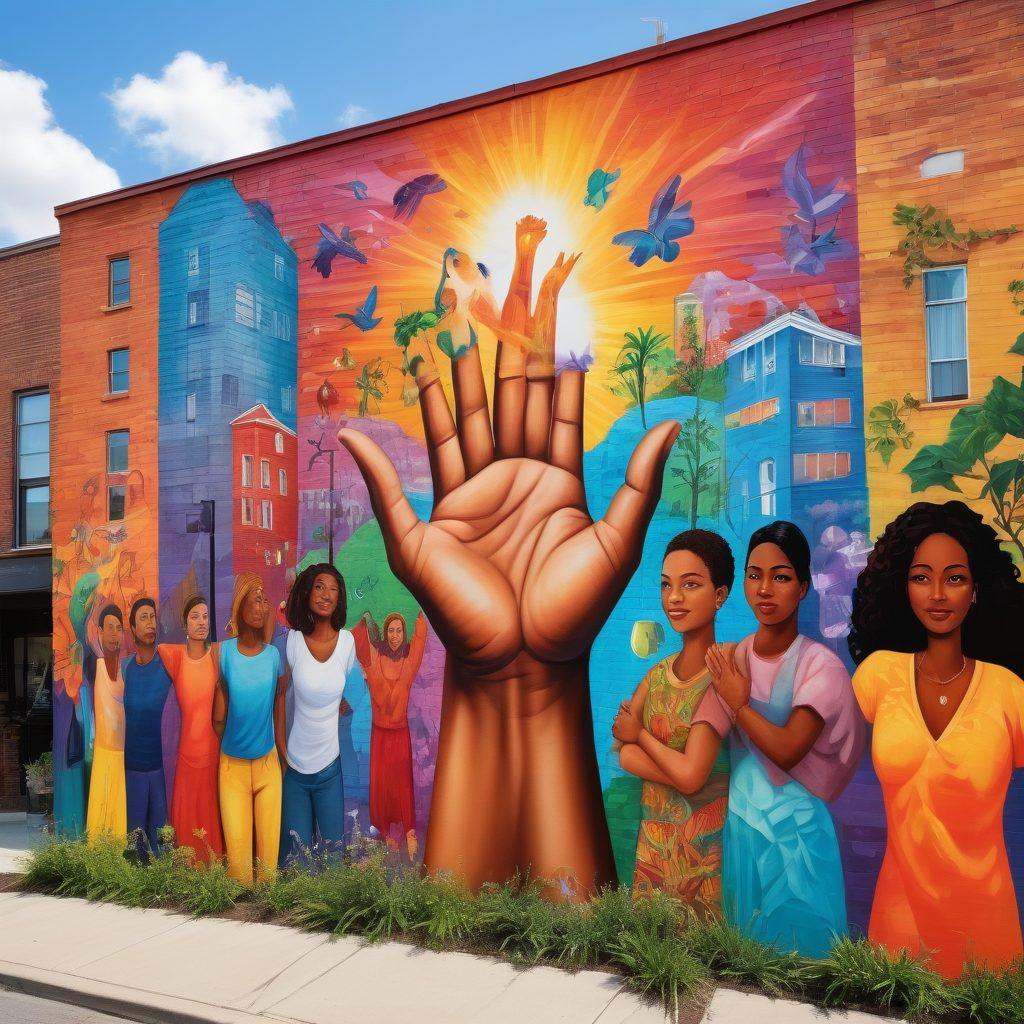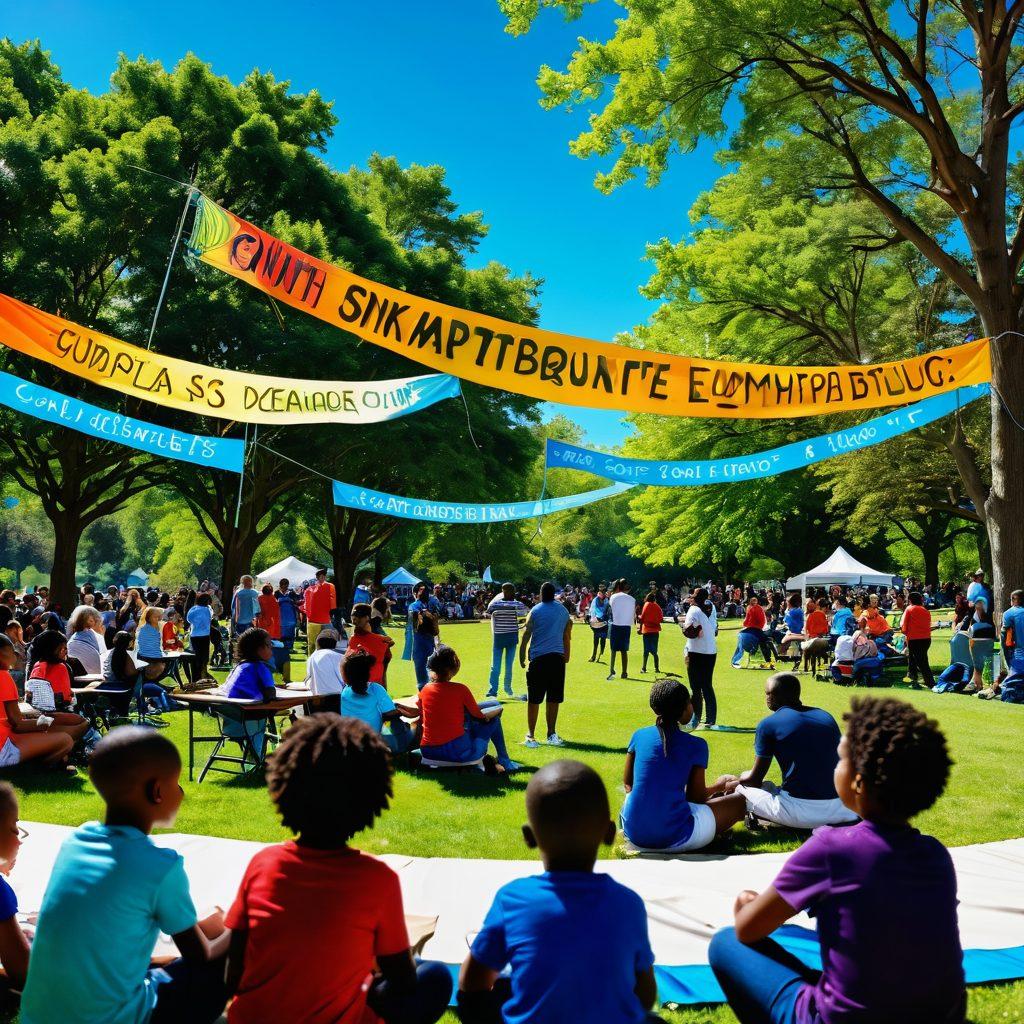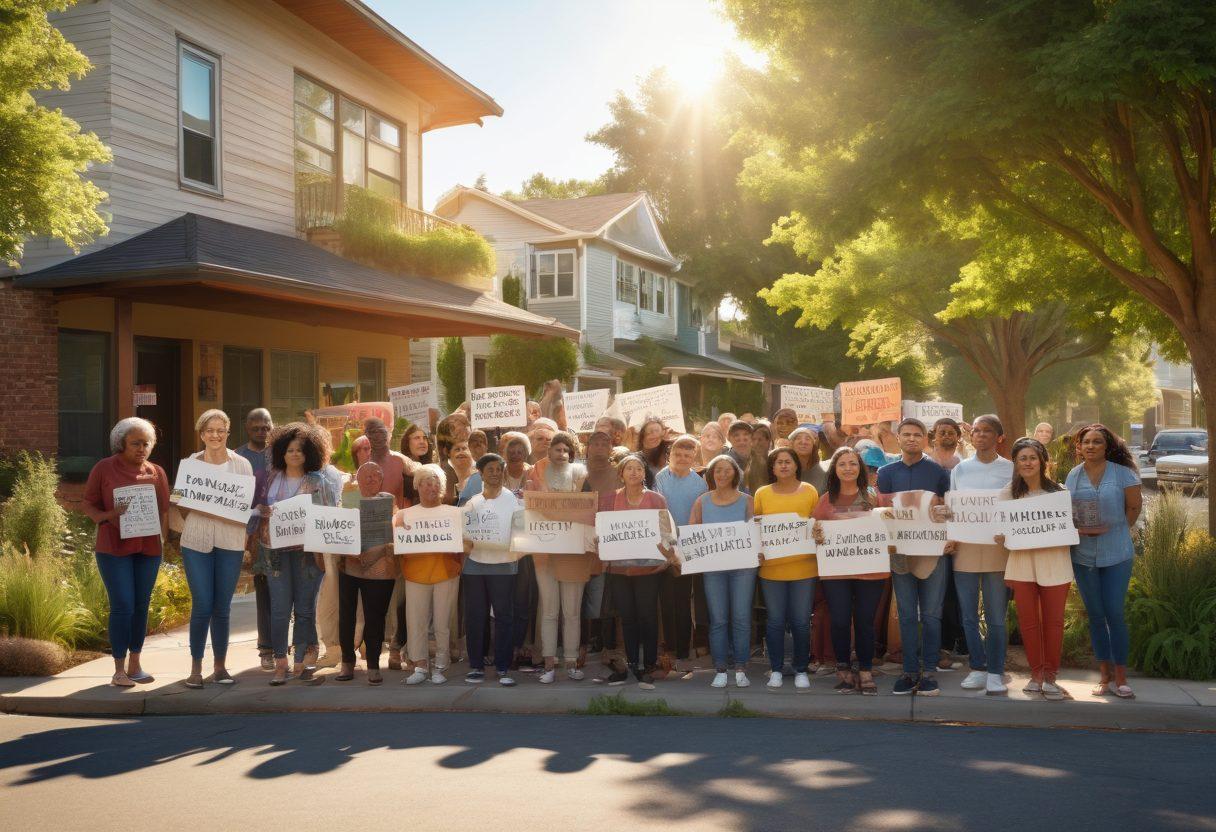Empowering Communities: Championing Inclusivity and Social Justice Through Collaborative Efforts
In a world where our differences can sometimes feel like barriers, it's essential to recognize the power of collaborative efforts in fostering inclusivity and promoting social justice. Imagine a vibrant community where every voice is heard, where diversity is celebrated, and where resources are accessible to all. This is not just a utopian dream; it's an achievable reality through collective action. As the saying goes, 'Alone we can do so little; together we can do so much.' So, how do we build these bridges of inclusion and equity? Let's explore the true potential of community engagement and supportive networks.
First and foremost, inclusivity begins with recognizing the uniqueness of each individual within a community. Every person brings distinct perspectives and experiences that contribute to the richness of diversity. However, achieving social equity requires action beyond mere acknowledgement. This means implementing inclusive practices that ensure everyone has a seat at the table, and their voices matter. Think about your own community: are there advocacy groups actively promoting equitable access to resources? If not, perhaps it's time to consider initiating empowerment initiatives aimed at bridging those gaps.
One of the most effective strategies for fostering inclusivity is through participatory action. This approach invites community members to engage actively in decision-making processes that affect their lives. Isn't it empowering to be part of conversations that shape your environment? By involving individuals from various backgrounds, communities can create solutions that are truly reflective of their diverse needs. Civic engagement doesn’t just strengthen social bonds; it also transforms passivity into power. As we encourage neighborly support and collaborative efforts, we can ignite a movement toward equality and fairness.
Accessible community resources play a pivotal role in promoting social justice. Imagine if everyone had a direct line to the tools and resources they need to thrive! From affordable housing programs to educational workshops, resource accessibility must be a priority for supportive communities. By pooling together efforts from various organizations and stakeholders, we can dismantle the barriers that hinder progress. When people are equipped with the right tools, they can advocate for themselves and uplift others. This isn’t just philanthropy; it’s solidarity, and it’s vital for creating long-lasting change.
At the heart of all these endeavors lies the urgency for empathy—an understanding that each community member's struggle is interconnected. The path towards inclusive practices isn’t always straightforward, but as we share stories, build relationships, and uplift one another, we strengthen our social fabric. Building bridges isn’t just about policies or programs; it’s about people. So, what small step can you take today to foster inclusivity in your community? Whether it's volunteering, supporting local advocacy groups, or simply starting a conversation, every action counts. Together, let's champion social justice and cultivate supportive communities where everyone has the opportunity to thrive.
Empowerment Initiatives: Strengthening Communities Through Diversity and Equity
In a world that often feels divided, the notion of empowerment initiatives aimed at strengthening communities through diversity and equity stands as a beacon of hope. Imagine living in a community where everyone, regardless of their background, feels valued and included. The heart of such a vision lies in inclusivity and the adoption of inclusive practices that embrace the unique contributions of each member. But how do we navigate the intricacies of social justice while fostering spaces that encourage collaboration and neighborly support? This journey begins with understanding the significance of empowerment initiatives in nurturing supportive communities.
Equity is not merely a buzzword; it is the foundation upon which we can build a more just society. The challenge, however, often lies in translating this ideal into actionable steps. What does it look like in practice? It means advocating for resource accessibility, ensuring everyone has access to the essential tools and networks necessary to thrive. Advocacy groups play a critical role here, pushing for policies that guarantee social equity and fairness for all. By engaging the community and amplifying the voices that have been historically marginalized, we can work towards creating an environment where everyone cooperates towards the common good.
It's essential to recognize that empowerment initiatives are not one-size-fits-all solutions. Each community is unique, woven together by diverse stories and experiences. Imagine an elderly neighbor who has a wealth of knowledge about gardening but feels isolated. By creating participatory action programs that focus on community engagement, we empower individuals like her to share her skills, thus fostering inclusivity and strengthening community bonds. When individuals feel valued and heard, the result is a collective uplift, translating to a healthier, more resilient society.
One of the most impactful ways we can champion inclusivity is through the establishment of support networks. These networks can provide a range of resources, whether it’s parenting advice, job opportunities, or mental health support. Think of it as weaving a safety net—where community members not only receive help but also give it in return. As people come together, sharing their resources and cultivating a culture of mutual support, they lay the groundwork for a thriving community that embodies equality and accessibility.
In closing, consider this: What are the legacy you wish to leave for future generations? By being proactive in our engagement with civil matters and supporting empowerment initiatives, we can create lasting impacts that resonate through time. In a society striving for equity and social justice, our collective efforts towards inclusivity will define the character of our communities. Let's commit to building spaces where everyone can participate, voice their needs, and together, we can transform our communities into hubs of diversity, equity, and opportunity.
Neighborly Support: The Key to Advocacy and Accessibility in Social Justice Movement
In a world that often feels fragmented and divided, the idea of neighborly support emerges as a beacon of hope. What if we could transform our communities into supportive enclaves where everyone feels included and empowered? This is where the intertwining threads of advocacy, accessibility, and inclusivity come into play, shaping the social justice movement to foster equity and diversity. Sometimes, the simplest actions—like lending a listening ear or sharing resources—can ignite profound change and inspire collective progress. But how do we build these supportive communities?
Neighborly support is not just a lofty ideal but a grounded practice that calls for active participation within our neighborhoods. As we pool together our strengths and resources, we create a robust network aimed at advocating for social equity. Think of it like a patchwork quilt: each square represents a unique individual contributing their talents and experiences to create a whole that is far stronger than its parts. How can we stitch together these squares to create a brighter future through community engagement?
Inclusive practices are at the heart of neighborly support. When we embrace diversity and recognize the unique needs of every individual, we cultivate an environment where everyone can thrive. Imagine a community where, irrespective of background or circumstance, every person has equal access to opportunities. Include your voice in conversations about resource accessibility! By fostering civic engagement and nurturing participatory action, we can also influence policy and drive meaningful change. What small action can you take today to promote inclusivity in your neighborhood?
A powerful quote from the renowned activist Maya Angelou comes to mind: 'I’ve learned that people will forget what you said, people will forget what you did, but people will never forget how you made them feel.' This sentiment underscores the importance of building supportive networks that prioritize feelings of belonging and empowerment. By creating spaces where discussions thrive and everyone’s perspective is valued, advocacy groups can galvanize efforts towards fairness and equality. Are we actively listening to our neighbors and understanding their stories?
At the core of neighborly support lies the belief that everyone has a role to play in driving social justice. By fostering an environment of togetherness, trust, and compassion, we can dismantle barriers and create a world where everyone feels empowered to speak up and take action. Let's celebrate inclusion and work towards a society built on empathy and understanding. Throughout this journey, let's remind ourselves that small acts can lead to monumental changes when fueled by the passion for social equity. Will you join the movement to foster neighborly support in your community?


